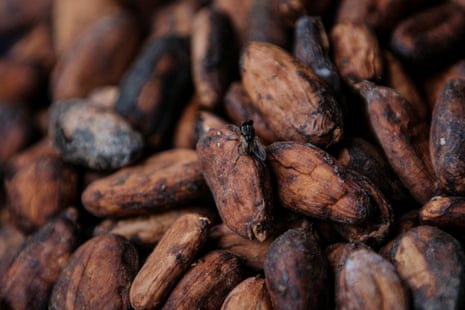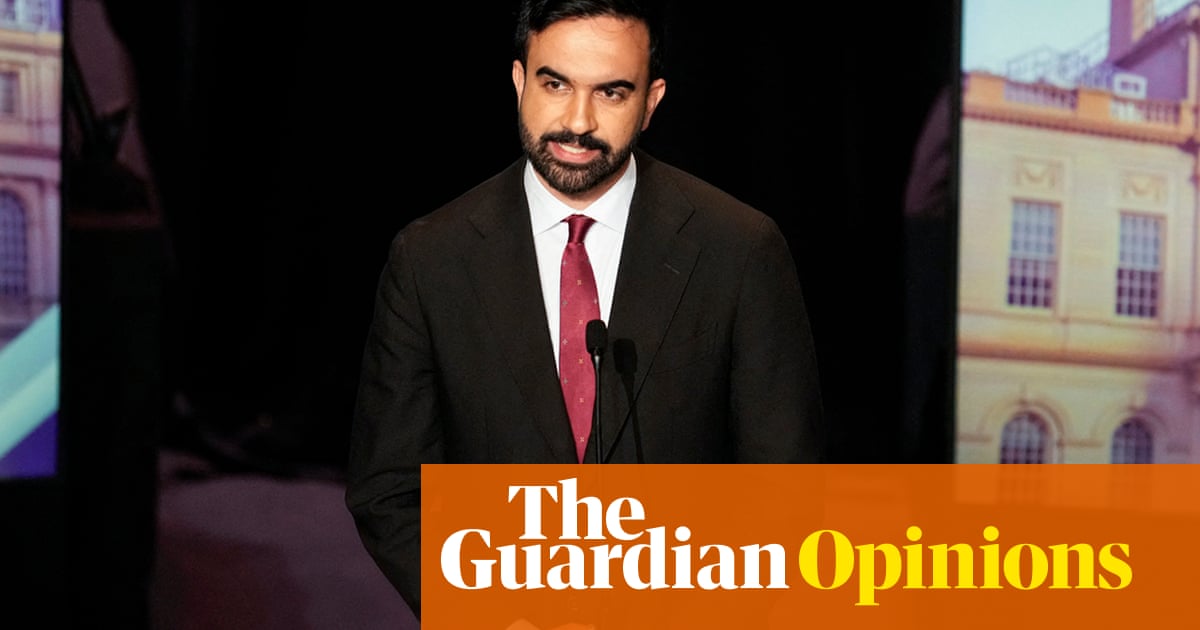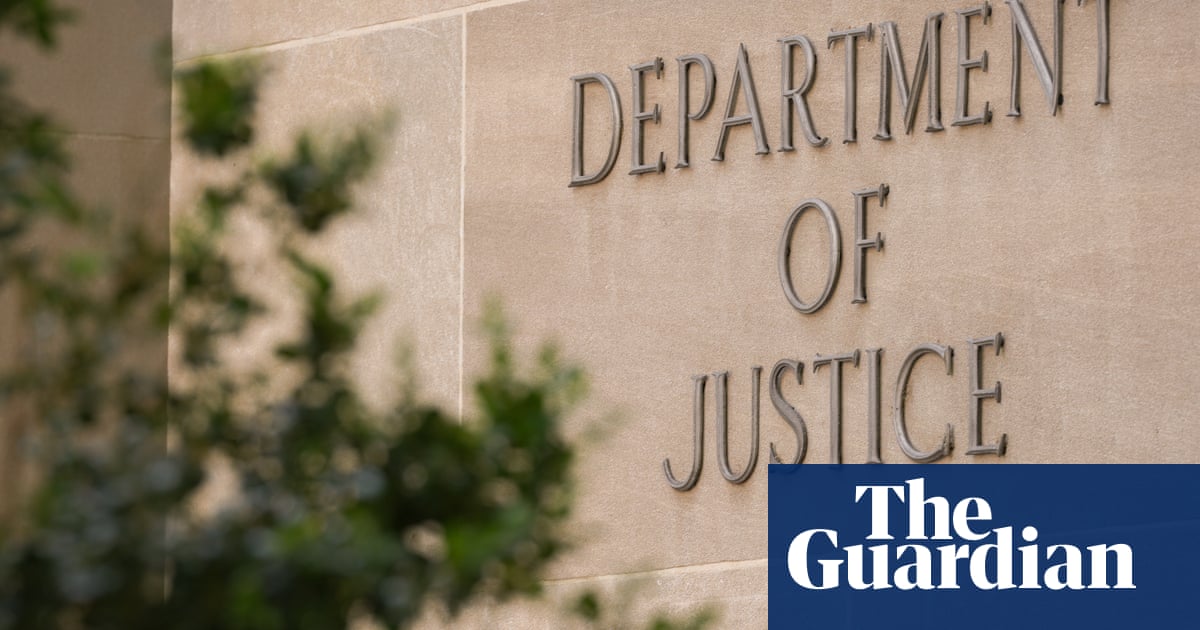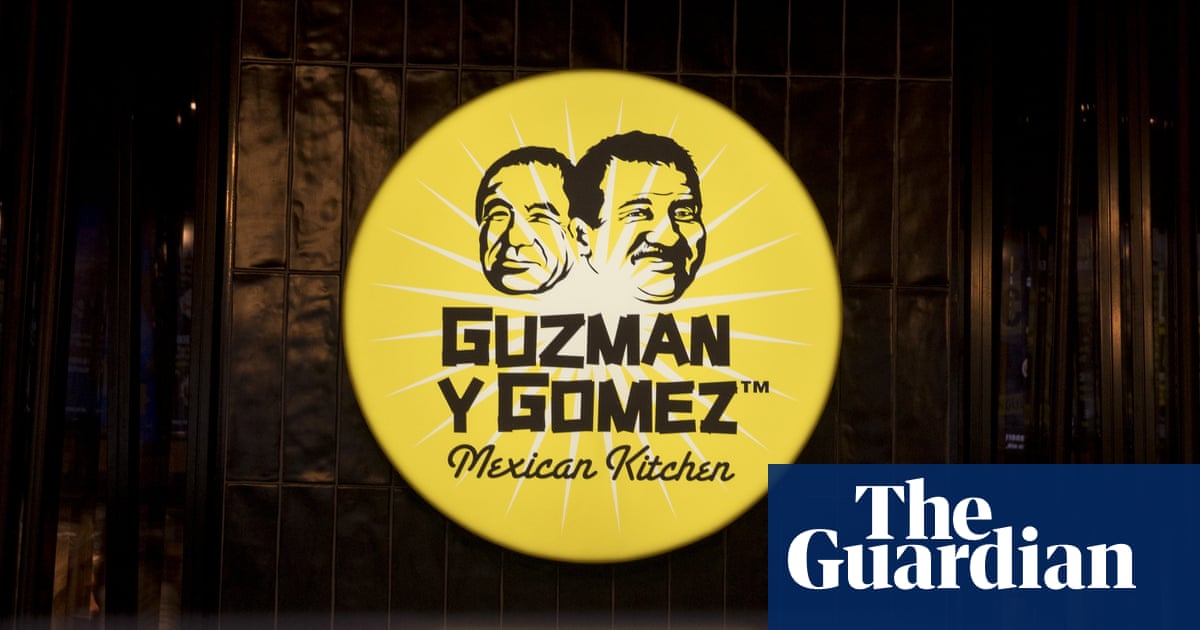HS2 project delayed beyond 2033, says Heidi Alexander, calling it 'appalling mess'

Gwyn Topham
Here’s more detail from our transport correspondent Gwyn Topham:
The HS2 high-speed rail network cannot be delivered on time and on the current budget and will be delayed beyond 2033, the government has admitted, blaming mismanagement by the previous government for schedule and cost overruns.
Transport secretary Heidi Alexander told MPs that there was “no reasonable way to deliver” the 2033 target for the first trains to run from London to Birmingham.
She did not immediately confirm a new price for the project, which some suggest will now top £100bn at current prices, having officially been in a range of up to £57b n at 2019 prices, nor yet how long the delay would be.
But Alexander said she was “drawing a line in the sand” as she unveiled what she called a “litany of failure” over the last 15 years. The government is publishing the findings of a review commissioned last autumn by Labour into the troubled transport scheme, and the first assessment in a “reset” of construction under new HS2 Ltd chief executive Mark Wild.
Alexander said Wild had been told to build the line as safely and cheaply as possible, even if took longer.
She said:
We won’t reinstate cancelled sections we can’t afford. But we will do the hard and necessary wok to regain public traust and build this line.
She told MPs that last government mismanaged HS2 in numerous ways, including signing contracts against advice and repeatedly changing plans for redesigning London Euston station – now at a total cost of £250m in rejected design plans alone, she said. Alexander told the Commons:
Billions of pounds of taxpayers’ money has been wasted by constant scope changes, ineffective contracts and bad management. It’s an appalling mess. But it’s one we will sort out.
Key events Show key events only Please turn on JavaScript to use this feature
UK transport secretary calls HS2 an ‘appalling mess’ as she confirms delay
Heidi Alexander has confirmed a further delay to the HS2 project, calling it an “appalling mess” but vowed to “sort it out”.
Speaking in the House of Commons, the UK transport secretary said:
We will learn the lessons of the past 15 years, and restore our reputation of delivering world-class infrastructure projects.
Billions of pounds of taxpayer’s money has been wasted by constant scope changes, ineffective contracts and bad management.
It is an appalling mess, but it is one we will sort out.
She added that there are also allegations of fraud.
Alexander said the government accepted all the recommendations of the HS2 review, which was commissioned last October, adding that ministers are already delivering on them, in five key areas:
-
A lack of oversight and scrutiny
-
Spiralling costs
-
A deficit in capability and skills
-
Addressing plans for Euston station in London
-
Transforming infrastructure delivery across government
Eurozone inflation confirmed at 1.9% in May, below ECB target
Eurozone inflation in May fell below the European Central Bank’s 2% target for the first time in seven months.
Eurostat, the EU’s statistical office, confirmed today that the annual change in the consumer prices index slowed to 1.9% in May, from 2.2% in April, in line with its earlier estimate. A year earlier, the rate stood at 2.6%.
Annual inflation in the European Union came in at 2.2% in May, down from 2.4% in April and 2.7% a year earlier.
The lowest annual rates were registered in Cyprus (0.4%), France (0.6%) and Ireland (1.4%). The highest rates were recorded in Romania (5.4%), Estonia (4.6%) and Hungary (4.5%). Compared with April, annual inflation fell in 14 member states, remained stable in one and rose in 12.
The highest contributions – pushing inflation in the eurozone up in May – came from services; food, alcohol and tobacco and non-energy industrial goods, while energy costs dragged inflation lower.
Using May Euro Area CPI released today, the average inflation since the launch of the euro stands at 2.1%.
The ECB’s target is 2%.
Not bad, after all… pic.twitter.com/eiB9JF4L7g
Fifa again under scrutiny for World Cup’s increased carbon footprint
As next summer’s World Cup approaches, excitement is building for the biggest global soccer tournament ever held, but so too are concerns over the viability and environmental sustainability of the vastly expanded competition.
Held across 16 cities in the United States, Canada and Mexico, the 2026 World Cup will see the tournament expand from 32 nations to 48 competing for soccer’s most coveted prize. It will be a tournament of unprecedented scale both in terms of the number of teams, and the vast geographical expanse it will cover.
Both of these factors bring significant environmental concerns, however – particularly regarding the tournament’s carbon footprint and the effectiveness of Fifa’s proposed mitigation strategies.
Fifa first introduced its Climate Strategy report back in 2021 in response to growing environmental concerns, launching its initiative at the UN Climate Change Conference (Cop26) that year. In the plan, Fifa pledged to reduce its carbon emissions by 50% by 2030 and achieve net zero emissions by 2040.
The strategy included measures such as promoting sustainable infrastructure, enhancing energy efficiency and encouraging the use of renewable energy. It also included a fair amount of carbon offsetting – a process by which entities buy “credits” that go toward environmental protection, to theoretically make up for emissions produced.
Overseas-trained dentists working in McDonald’s as millions lack NHS care
Overseas-trained dentists are working in McDonald’s and other takeaways in the UK even though millions of patients are finding it impossible to get NHS dental care – with “dental deserts” emerging – areas without access to NHS dentists.
The disclosure comes in a new report being sent to MPs on Wednesday, which urges ministers to slash bureaucracy stopping dentists from abroad plugging the huge gaps in NHS dental care.
The main obstacle they face is securing a place to take the exams needed to work in the UK, a process so difficult some liken it to obtaining a ticket to see Taylor Swift.
As a result fully qualified dentists from countries such as India, Egypt and Albania are spending months or even years at a time working in fast food cafes, according to the Association of Dental Groups (ADG).
The ADG, which represents major dental providers, demanded an urgent overhaul of the two-part overseas registration examination (ORE) to avoid “an unacceptable waste” of foreign dentists’ skills. Dentists who qualified overseas need to pass both parts of the ORE in order to gain entry to the General Dental Council’s register, which then allows them to work in the UK.
Airbus to pay out more in dividends
Airbus said it aims to pay out more in dividends, and confirmed guidance for 2025, ahead of a business update.
The European aviation company, which makes single-aisle jets for passenger airlines, has raised the upper end of its dividend payout target to 50%, from 30% to 40% previously.
The world’s biggest planemaker reiterated its commitment to profitable growth and reaffirmed its production targets. Airbus shares are trading 2.6% higher, after jumping nearly 4% earlier.
The Airbus chief executive, Guillaume Faury, and its chief financial officer, Thomas Toepfer, are giving a business update today – you can watch here.
It comes as the global aerospace industry gathers at the Paris airshow, where manufacturers are showing off their latest offerings, amid escalating fighting in the Middle East, sweeping US trade tariffs and supply chain strains.

The company faces supply chain problems that have left almost 40 aircraft stranded without engines at its factories, as shortages of cabin equipment and at power plants disrupt deliveries.
However, since early 2025, Airbus has experienced 40% less disruptions by delayed components at its production facilities, the group’s head of operations for the commercial aircraft business, Florent Massou, said during the business update, Reuters reported.
Amazon boss tells staff AI means their jobs are at risk in coming years
The boss of Amazon has told white collar staff at the e-commerce company their jobs could be taken by artificial intelligence in the next few years.
Andrew Jassy told employees that AI agents – tools that carry out tasks autonomously – and generative AI systems such as chatbots would require fewer employees in certain areas. He said in a memo to staff:
As we roll out more generative AI and agents, it should change the way our work is done. We will need fewer people doing some of the jobs that are being done today, and more people doing other types of jobs.
It’s hard to know exactly where this nets out over time, but in the next few years, we expect that this will reduce our total corporate workforce.
UK house price growth halves after tax break ends; rent rises cool
Annual house price growth in the UK has halved, after a tax break expired, according to official figures.
The average UK house price increased by 3.5% in the 12 months to April, halving from 7% growth recorded in the 12 months to March, according to figures from the Office for National Statistics. The average home cost £265,000.
Buyers rushed to complete their purchases before a stamp duty holiday expired on 31 March, driving up prices that month.
The rental market continues to cool, with the fifth month of slowing annual growth across the UK. Average UK monthly private rents increased by 7%, to £1,339, in the 12 months to May; down from 7.4% in the 12 months to April.
The north east once gain showed the highest annual increase and the south west the lowest growth. London was the only English region where inflation picked up, said Aimee North, head of housing market indices at the ONS. Private rents in Scotland grew at their lowest annual pace in three years.
Average UK house prices increased by 3.5%, to £265,000 in the year to April 2025, down from 7.0% in the 12 months to March 2025.
Average UK private rents increased by 7.0% in the year to May 2025, this is down from 7.4% in April 2025.
Minister says UK turned into international 'laughing stock' as HS2 delayed further
HS2 is to be delayed yet again by at least a further two years, the UK government will announce today, as the transport secretary says the Conservatives wasted billions on the project through mismanagement.
Heidi Alexander will tell MPs there is “no reasonable way to deliver” the 2033 target for the high-speed rail line from London to Birmingham.
She will announce the findings of two reviews into the troubled transport scheme, even as ministers brace to swallow another increase in the projected price tag to a reported £100bn.
Alexander will tell MPs the last government overspent on HS2 in numerous ways, including signing contracts even when advised not to and drawing up expensive plans for redesigning Euston station in London before scrapping them.
The UK has been turned into an international “laughing stock” over the failure to control the HS2 rail project, a minister has admitted.
Housing and planning minister Matthew Pennycook said there were “serious problems” with HS2 “in terms of accountability, project overruns, costs”. He told LBC radio that the way HS2 and other infrastructure projects have been handled “reflect very poorly on us” as a country.
He said the planning and infrastructure bill includes a number of changes that will “speed up the consenting process for nationally significant infrastructure” and this week’s infrastructure strategy “seeks to reverse the frankly erratic decisions and underinvestment we’ve seen over the past 14 years”.
So we do need to learn the lessons, take a different approach, ensure that we’re getting infrastructure investment going in, certainty and stability about investment and getting to grip with project timelines and costs.
Because I think, frankly, when it comes to HS2, in some ways, we’re a bit of a laughing stock around the world in terms of how we handle infrastructure. As a government, we’re absolutely determined to turn that around.
Staying with the food theme… Ole & Steen, the Danish bakery and coffee chain which runs 26 cafes across London, has reported a jump in UK sales and profits, after launching new products and a new web-based ordering portal to better serve offices.
Last year, the company made underlying profits (measured by earnings before interest, tax, depreciation and amortisation) of £4.9m, up from £3.9m in 2023. Revenues rose by 5% to £36.7m. Ole & Steen enjoyed 17% like-for-like sales growth in the fourth quarter.
UK managing director Graham Hollinshead said:
This performance was driven by a stellar finish to the year… firmly re-establishing our position as London’s favourite Danish bakery and coffee house. This positive momentum has continued into 2025.
Ole & Steen has invested in its London production site in Leyton and expanded to three major delivery platforms. In 2024, it launches the Christmas turkey toast, cardamom bum and added a festive twist to its flagship product, the cinnamon social.
The company was formed when the founders Ole and Steen joined forces. Third-generation baker Ole Kristoffersen opened a bakery with his girlfriend Jane in 1991 in Christianshavn, Copenhagen while Steen Skallebaek opened its first bakery in Jutland in west Denmark in 1992.
Chocolate prices in Britain rising at fastest rate on record
Chocolate prices in Britain are rising at the fastest rate on record, the latest official figures suggest.
Chocolate prices jumped by 17.7% in the year to May, the biggest increase since records began in 2016, according to the Office for National Statistics.
Chocolate prices have risen following bad harvests in cocoa-producing regions, caused by bad weather, for example in Ghana and Ivory Coast.

Seven categories saw inflation in double digits, the Food and Drink Federation noted: butter (18.2%), chocolate (17.7%), beef and veal (17.0%), coffee (13.9%), lamb and goat (11.2%), edible offal (10.1%), and cocoa and powdered chocolate (10.1%).
Prices fell the fastest for: olive oil (-6.0%), pasta products and couscous (-6.0%), and rice (-2.9%).
Shares in Ocado jumped by more than 4% in early trading, after the UK online grocer and technology company clinched a deal with Catalonian supermarket group Bon Preu to build a robotic warehouse near Barcelona.
Ocado said it was expanding its partnership with Bon Preu, which was its first international partner in 2017.
Ocado sells groceries online and has a joint venture with Marks & Spencer, but investors are more interested in its technology. It has developed robots that zip up and down warehouse aisles to pick groceries, and builds automated warehouses for other retailers around the world.
Following the early share price gains, Ocado’s stock has now dipped slightly, by 0.16% to 244.1p a share.
AO World profits jump after musicMagpie acquisition

Lauren Almeida
In other news, the UK online electrical goods seller AO World has reported a jump in full-year profits on the back of its musicMagpie acquisition.
It posted a 32% rise in like-for-like adjusted pre-tax profit to £45m for its latest financial year, ahead of what investors had been expecting. It was the best year ever for profits by that metric, the retailer said.
The company, which sells a range of electrical goods from washing machines to laptops, reported a 7% rise in like-for-like revenue to £1.1bn, while sales in its business-to-consumer division gew by 12% to £832m in the year ended in March.
Its growth was driven by the expansion of its membership offering, as well as a wider product range and its recent acquisition of the second-hand electronics retailer musicMagpie, the company said.
However on a statutory basis, which takes into account fees related to the musicMagpie acquisition as well as an impairment charge related to its mobile business, dropped by 40% to £21m.
Management struck an optimistic tone, reiterating a target of adjusted pre-tax profit of £40m to £50m for its current financial year, “despite the wider macroeconomic challenges, particularly employment cost increases”.
AO World, which employed about 3,000 people last year, noted there had been a rise in employment costs over the year which it said “will only further increase” this year due to government changes to the minimum wage and employers’ National Insurance contributions. It will “increasingly look to mitigate these costs through automation, outsourcing and offshoring”.
European gas prices rise for sixth day, with Hormuz traffic in focus
European gas prices are rising for a sixth day, as traders worry that an escalating conflict between Israel and Iran could disrupt global energy flows.
European natural gas futures jumped above €39 per megawatt hour, the highest in more than ten weeks. The Dutch benchmark rose by 1.5% to 39.805 MWh.
Tensions heightened after Donald Trump urged the evacuation of Tehran and dismissed peace talks. The US president wrote on social media that the United States knows the location of Iran’s leader Ayatollah Khamenei, adding that the US would not kill him “for now” but called for Iran’s “unconditional surrender”.
While Europe currently has enough gas supplies, its reliance on global liquefied natural gas makes it vulnerable to geopolitical shocks.
A big concern is the Strait of Hormuz, through which a fifth of global LNG and oil shipments pass. If Iran blocks the waterway (the only sea passage from the Persian Gulf to the open ocean), Qatari exports, which account for nearly 4% of Europe’s gas, could be affected. So far, Quatar says navigation remains normal.
Hotter than usual temperatures across Europe are boosting demand for air conditioning, ramping up energy demand.
The pound has gained nearly 0.3% against the dollar, trading at $1.3461, while the euro is up by more than 0.3% against the greenback, at $1.1515.
On the stock markets, the FTSE 100 index is 20 points ahead at 8,854, up 0.2%. Germany’s Dax is slightly in the red at 23,419 and France’s CAC is up by a smidgen, while Italy’s FTSE MiB index has added 0.25%.
Dollar wobbles amid Israel-Iran fighting as investors await Fed decision
In financial markets, the dollar is falling against most major currencies, as the latest developments in the Israel-Iran conflict left investors nervous – ahead of the US Federal Reserve’s interest rate decision later today.
Israel has pounded Iran over the past six days, with strikes against nuclear and military sites and the assassination of top nuclear scientists and military leaders, and is pushing for regime change in the Islamic Republic. Israel’s defence forces said they launched a fresh wave of strikes on Tehran in the early hours of Wednesday morning, warning residents in parts of the city to urgently evacuate.
The US military is deploying more fighter jets to the Middle East, Reuters reported, sparking speculation of US intervention that investors fear would widen the conflict.
The dollar fell by nearly 0.3% against a basket of major currencies. It has lost more than 8% so far this year as confidence in the US has waned due to Donald Trump’s sweeping trade tariffs and other policies.
Currency strategist Rodrigo Catril at National Australia Bank told Reuters:
The dollar is still a safe haven because of its depth and liquidity, so yes the structural forces are diluting the dollar safe-haven activities, but they’re not eroding them completely.
But in a scenario of big risk aversion, the dollar will still gain support but maybe not to the same extent it has managed in the past.
The latest UK inflation data showed that the annual rate for goods inflation rose from 1.7% to 2% in May, while the services annual rate slowed from 5.4% to 4.7%.
The latter is closely watched by the Bank of England, as the UK economy is dominated by the service industries.
Sanjay Raja, chief UK economist at Deutsche Bank,
The focus now will turn to geopolitical events and the rise in energy prices. This will undoubtedly complicate the monetary policy committee’s task. Higher energy prices will mean higher inflation expectations. The trump card? The labour market data.
The ongoing labour market loosening should give the MPC a little more confidence in its ‘gradual and careful’ approach to dialling down restrictive policy. And crucially, today’s data should help convince MPC members on the fence that price pressures are tracking as expected and underlying disinflation remains on track.
But don’t expect a dovish pivot just yet – more data and more accumulation of evidence that the economy is returning to a sustainable equilibrium will be needed to push the MPC into a more dovish direction.

 4 hours ago
2
4 hours ago
2

















































